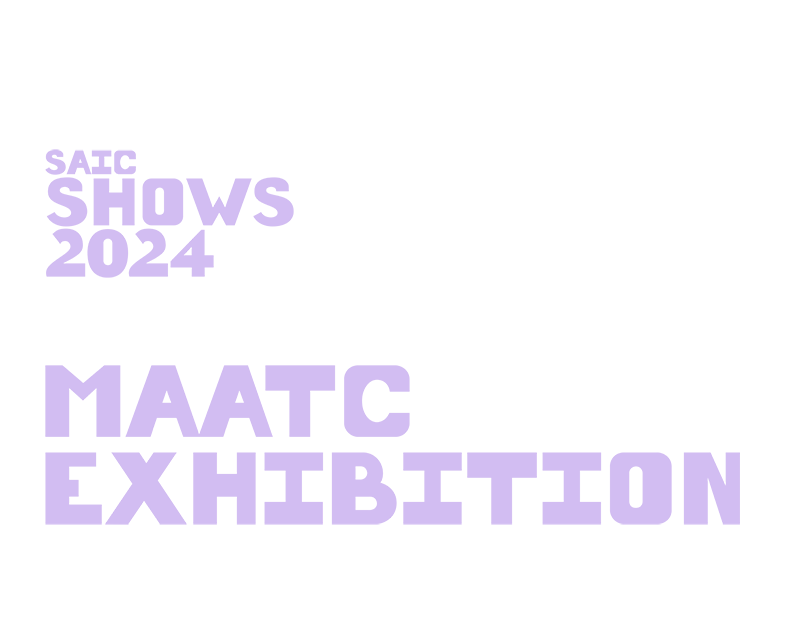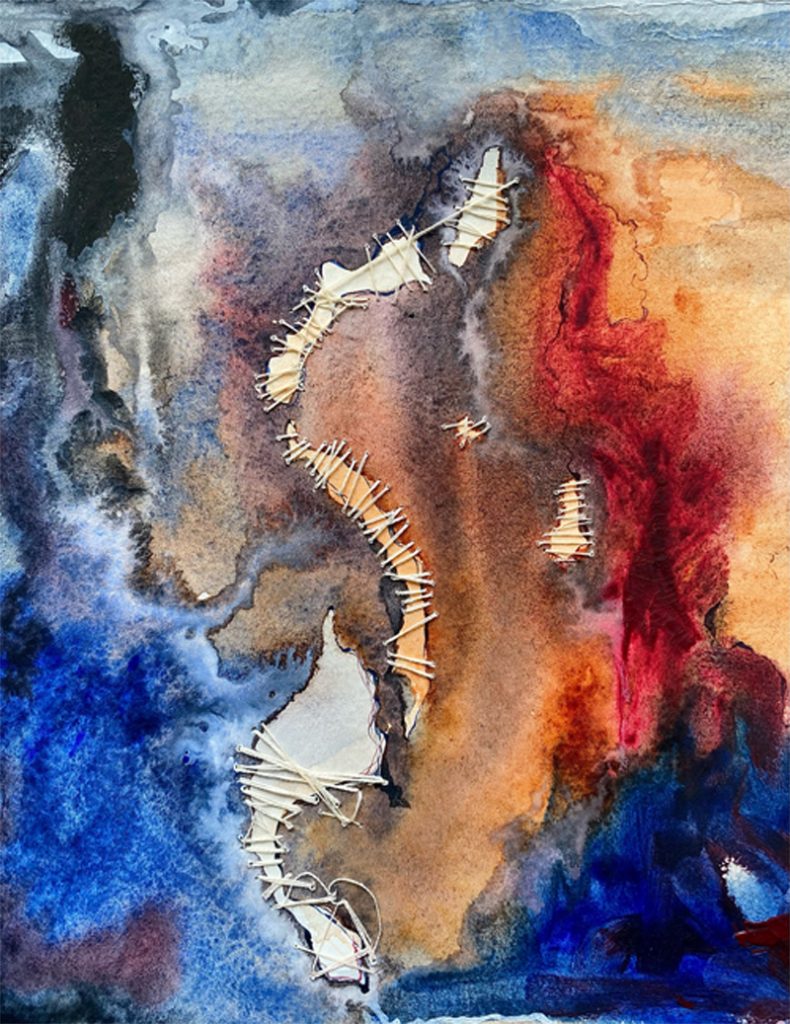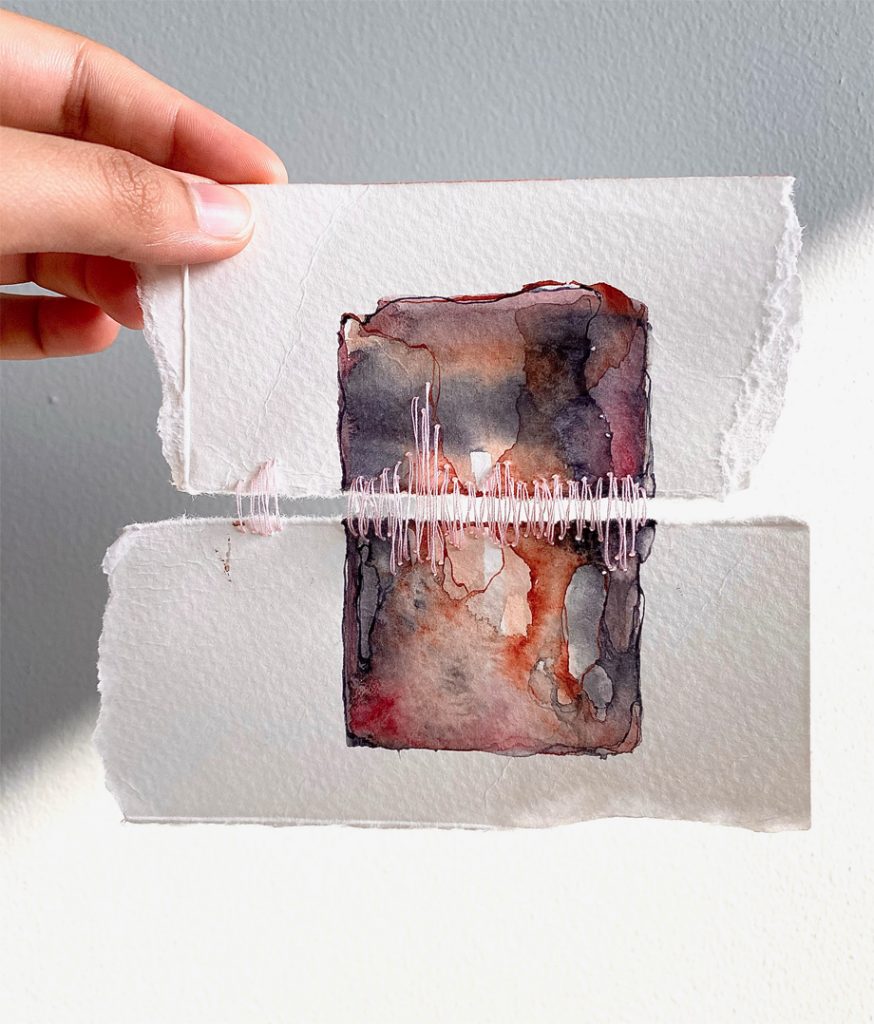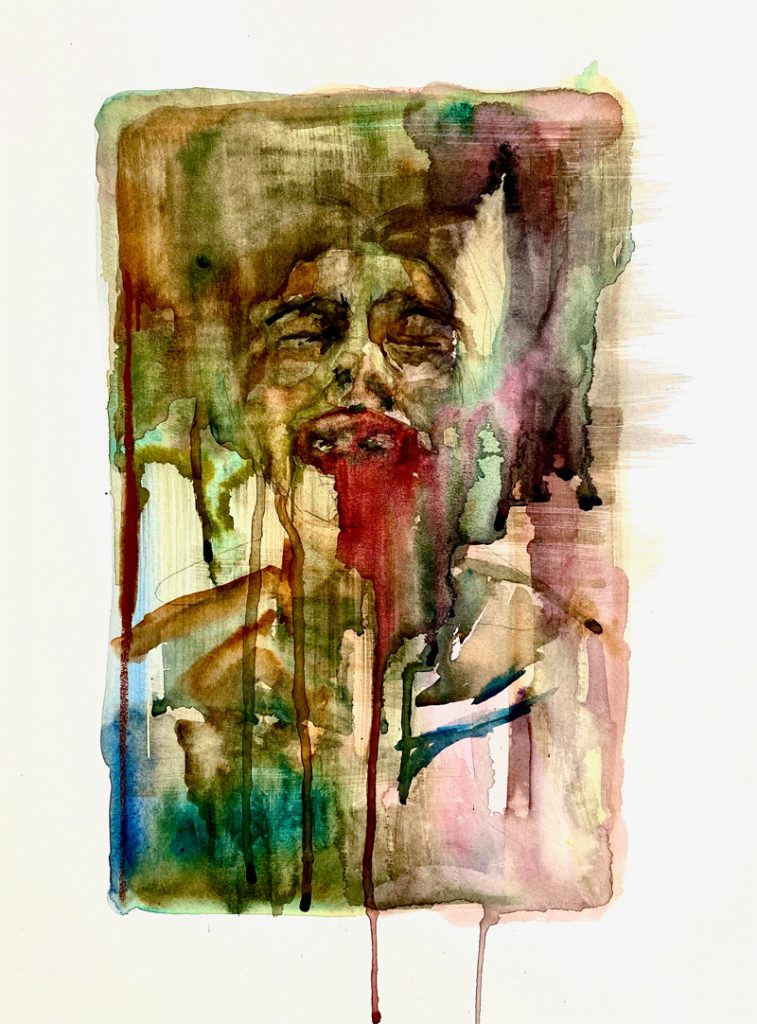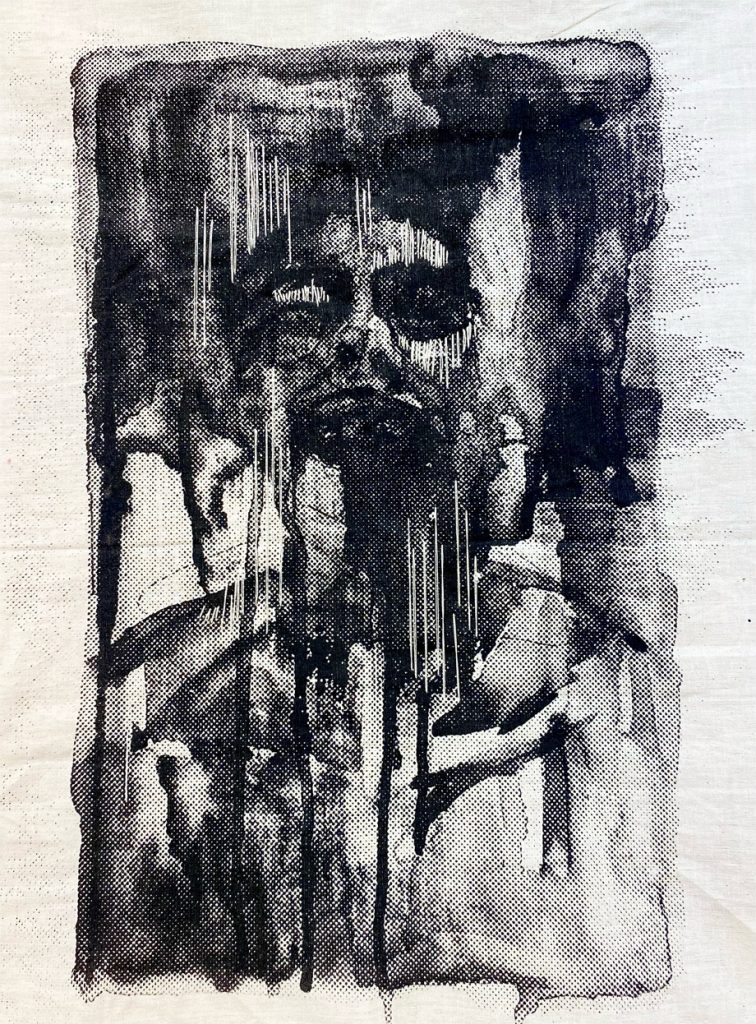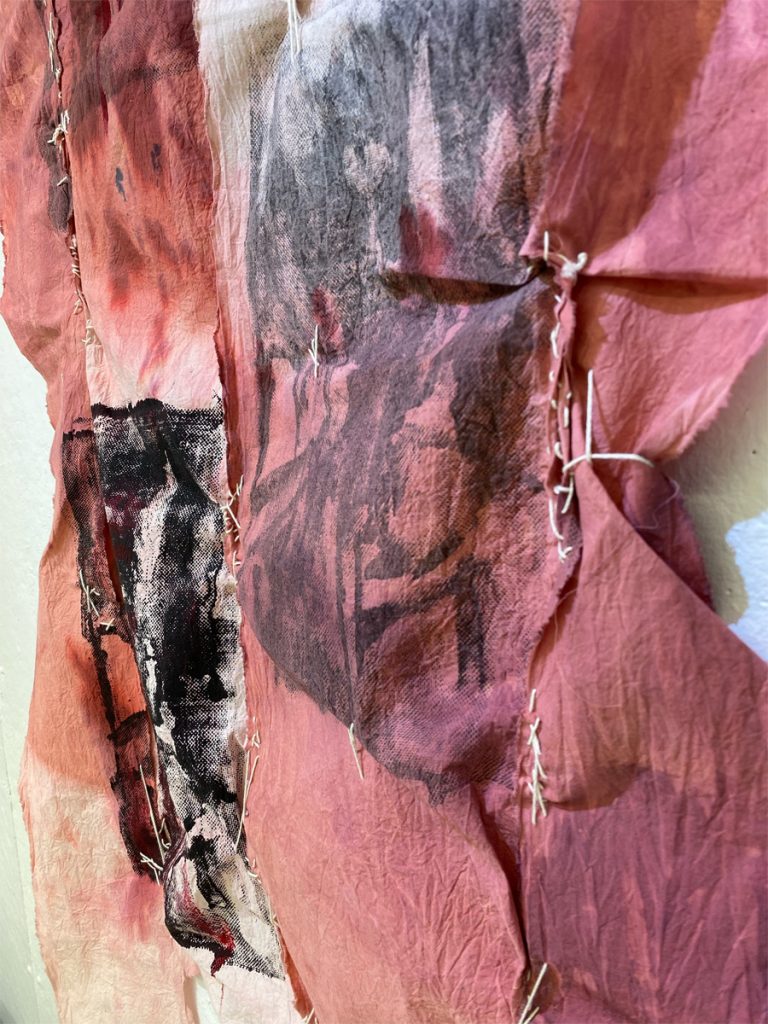Sarita is an artist, activist, and educator, trained at the Student’s Art League of New York, Columbia University, and New York University. While pursuing a Masters in Art Therapy and Counseling at The School of the Art Institute of Chicago, she has worked with diverse communities at Asian Human Services and at Mosaic Counseling and Wellness. Sarita serves on the Art Therapy Accreditation Board as a student representative and has worked as a Teacher’s Assistant in graduate-level courses. As an activist, Sarita has worked with feminist, non-governmental organizations, including The Melanin Collective, The Azadi Project, and currently as a Creative Arts Consultant at People Beyond Borders. She has lived and worked in Bangladesh, India, The United States, and Mexico. Her experience abroad shapes both her artistic and therapeutic vision, and she intends to pursue art activist opportunities globally. Sarita has exhibited in Washington DC, New York, and Mexico City.
Through creative endeavors, I unpack fears and discover strength. I often create work that depicts my face and body, or work that offers an abstraction of an internal world. While deeply personal, my art speaks to the communities I embody and move within. The narrative that flows through watercolors and that is stitched across tapestries reflects what shapes me. The materiality of creative mediums offers a tangible investigation of these stories. Watercolor’s unpredictability evolves my vision and supports imaginative development. With fabrics, I explore my heritage and as a gendered labor project. As I take needle to cloth or paper, every puncture leads to mending and the making of something new.
Today, I use paint, stitching, and screen printing to investigate what occurs emotionally in identity formation and its presentation, specifically how queer and immigrant identity co-create each other. I intend to complicate perceptions of what “self” is and speak to how spaces of intersection contain both conflict and creative potential. Through a critical, artistic, auto-ethnography, I investigate how to care for myself and others, and consequently, critique systems of oppression that hinder individual and collective wellbeing. As an artist and counselor, I am discovering ways in which the field of art therapy can provide more holistic treatment to those with interwoven identities.
